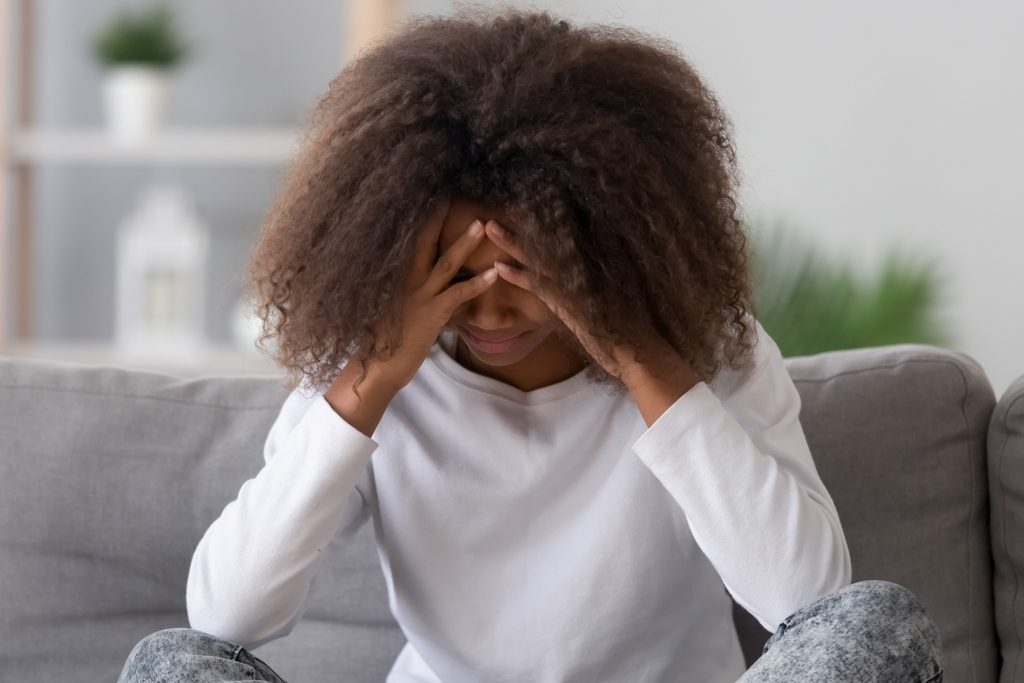[ad_1]
By Alexis Taylor
Special to the AFRO
#AFROcoversCOVID
Eric Garner. Walter Scott. George Floyd.
The names are interchangeable but the story is the same: Black body brutalized by police. Outrage. A calming.
Repeat.
America is conducting business as usual, but members of the mental health community warn that -for younger generations- this cycle of unnatural death and despair is doing much more damage than the eye can see.
From depression to trouble focusing, the implications of living in a country with racial tension and unrest are endless- even if part of the battleground is virtual.

“We are traumatized,” Korey Puckett, a licensed clinical social worker, told the AFRO. “My practice, over the last few weeks, has seen a lot of questions. There’s increased anxiety and a lot of confusion.”
Puckett said that many young children watching news coverage on the George Floyd killing and subsequent riots are not raised in racist households. As a result, they have trouble reconciling the tolerance they are taught at home with the intolerance on display via television and social media.
“Even if your kids are not vocally talking about it, they are definitely thinking about it. ‘Black Lives Matter’ is on Roblox,” said Puckett, referencing how even popular virtual games aimed at children are addressing race relations.
“Whether the updates come from television, radio, or social media- they are exposed to the conversation and the environment,” said Shonn Scott, a Baltimore-based counselor. “When they see and hear acts of violence it can be traumatizing, confusing, and frightening for them. Especially seeing violent acts with people who should be trusted authority.”
Scott discourages adults from repeatedly viewing violent confrontations on tape, and she especially warns against allowing children to become “part of the background” while parents are speaking with other adults or watching news coverage.
Scott said behavioral responses to the anxiety caused by racial tension and unrest include “nightmares, restlessness, unusual or new level of acting out, playing with dolls in a violent way, nervousness, bedwetting and nail biting.”
In 2019, the American Academy of Pediatrics issued a statement on the health implications of racism for the first time. The Academy found that “the stress generated by experiences of racism may start through maternal exposures…and continue after birth with the potential to create toxic stress.”
According to the Academy, stress from racial inequality can cause a range of effects from “preterm births and low birth weights in newborns” to “heart disease, diabetes and depression as children become adults.”
Brie Sutton, a Baltimore-based graduate counselor, told the AFRO “racial micro aggressions can affect school performance and also result in a trauma response called ‘hypervigilance,’ where the child is ‘on guard’ and perceives the world to be unsafe.”
To combat feelings of uncertainty, anger, or panic produced by images of police brutality and violence, mental health professionals say parents have to communicate with their children.
“We ensure the mental health of minors in our communities by being very intentional as providers,” said licensed clinical social worker, Dana Lewis, CEO of Baltimore’s Whole Life Center. “Parents can ask their children what they know, what they’ve seen, and how they are feeling.”
“Parents can validate their feelings and let them know what you are doing to keep them safe- be it in your home or your community.”
Lewis said youth need age appropriate conversations to understand the rage of protestors, the state of race relations in America, and their Constitutional rights.
In 2020, he believes that when it comes to being Black in America,“parents can think of ‘the talk’ as more of a process than a singular conversation.”
[ad_2]
Source link
